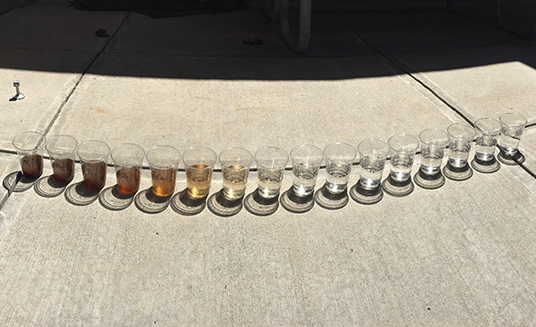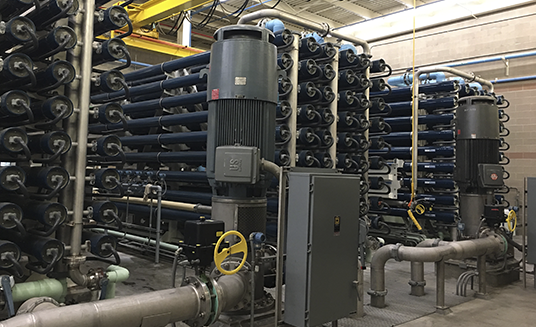The City of Brighton was experiencing challenges meeting peak summer water demand, because their water treatment plant (WTP) was operating at less than half of rated capacity. BC’s subject matter experts evaluated the plant to identify opportunities for optimization to improve operational performance and capacity. The team evaluated the WTP performance and identified the issue, breakthrough of oxidized manganese.
Through laboratory analysis and filter loading rate testing, backwashing procedures were evaluated for effectiveness and efficiency. This test revealed that the plant was over washing their filters (shown in photo below) and the WTP could reduce the time and water used by about 30 percent. Bench testing followed by full scale demonstration testing was performed to optimize WTP operations, buying more time for the City’s management and staff to consider options before they needed to invest in a treatment plant upgrade.
The City of Brighton saw the results of the study achieve an additional 1-1.5 mgd or 25-33 percent increase in capacity of the plant, ensuring they could meet demand for another 3 years until a new plant was built.

During laboratory analysis and filter loading rate testing, BC’s subject matter experts found the WTP was over washing their filters and could reduce the time and water used by 30 percent.

